ZicoSuave
Intrigued by film but indebted to literature.
Contributor I
- Plebian Penman
- Lurker
- Pssst
- Sharp-Eyed Citizen
- Town Watch
- Actor
- ?
- Articles
6 - Featured
4 - Comments
17
- Ext. Comments
14 - Processed
16 - Revisions
14
- Topics
0 - Topics Taken
0 - Notes
0
- Topics Proc.
0 - Topics Rev.
0
- Points
962 - Rank
148 - Score
473
Latest Articles
Latest Comments
| Swamps and Bogs in '80s Films and Medieval Literature | |
What’s your take on Equus? With its bizarre atmosphere and stage directions (which tap into filmic conventions like diegesis and the flashback/voiceover mechanism), Equus seems a fascinating play to see if you’re into film. I’ve only read it, though — not sure how the written play translates to the stage. | 5 Must-see Plays if You Love Film |
Cool article. Thanks for piecing together all these nuanced references — I know this can be a subtle show. Also, “Tales from the Public Domain” is gold. | The Bard of Springfield: An Analysis of Four Shakespearean References in The Simpsons |
Awesome analysis. I too am struck by the use of mirrors in these two works of art, and am especially drawn to the mise-en-abyme type of mirror image in Santa’s Surprise. The troubling parallel between that maturing little girl’s growing self-awareness and her being “placed into abyss” (translation of mise-en-abyme) really lends credence to your point about Rockwell’s cheesy paintings belying a less-than-innocent world. These paintings remind me of certain Hollywood family melodramas of the 50s, like Bigger Than Life (1956) and All That Heaven Allows (1955) — I’d recommend them, especially if you’re into expressive use of color and kitschy veneers covering dark undercurrents. | Norman Rockwell around the Christmas Tree: Maturity, Sexuality and Santa |
And obviously “fictional feature films” and “documentaries” are not mutually exclusive categories, but hopefully the gist of my point made it through. | The Games of 90s Indie Cinema: "Welcome to the Dollhouse" and "Sex, Lies, and Videotape" |
Exactly. I actually first saw Welcome to the Dollhouse with a group of British people, and afterwards they asked me (an American) whether school life in the U.S. matches up with how it’s depicted in the film. That was their first question, and it leads me to believe that at some point they began seeing the film as a sort of documentary — but this neither detracted from their enjoyment of the film nor barred them from finding what point it served for them. They found a way to engage with the material on screen, and by taking an active role (playing with the film, i.e., shifting it from a fictional feature film to a documentary) they were learning how to be sophisticated spectators. The potential for that sort of education is much of what I find valuable in independent films like Welcome to the Dollhouse. | The Games of 90s Indie Cinema: "Welcome to the Dollhouse" and "Sex, Lies, and Videotape" |
Great summary of the current state of things. There’s tons to comment on here, so I’ll just choose one. At the end of the piece you take the scene from Shawshank and, in relating it to the state of film, give it a positive, hopeful spin, but one might just as easily look at that example with terrific sadness. Here’s a guy, alone, with nothing but a memory (and a memory that can never be relived or confirmed because the record player is gone) — is that where where we’re headed? Are we who love film destined to watch them solitarily, unable to relinquish our nostalgia? While — like you — I enjoy films regardless of how they’re presented, I also am vaguely aware of the bizarre connections that are created among people when watching a film with a large audience. I think in some ways we learn to interact with our world when we learn how to watch films, and it’s worrisome to consider the possibility that future humans will learn how to interact with the world by watching films alone. “Going to the movies” is a shared experience that actually has little to do with the film being projected — it might have more to do with learning how to properly react to (or with) external stimuli, including other people. | The Implosion of Cinema: A Bleak Future for the Film Industry |
It’s a great song, and that last line — “I told you when I came I was a stranger” — definitely has relevance to McCabe. What sort of person feels the need to announce that they’re a stranger? A typical Westerner, but also a typically apprehensive person — two supposedly opposite characters types, but McCabe encapsulates both of them. | McCabe and Mrs. Miller: The Conflicted 60s/70s Culture |
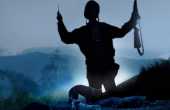
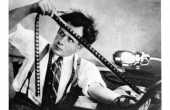
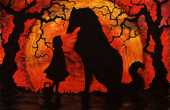
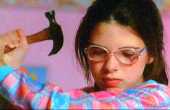
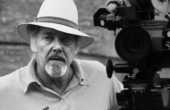
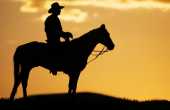
Tactile and olfactory sensations are inevitably tied up with the experience of being in a swamp/bog — I wonder what you make of the swamp/bog metaphor being used so often in film, an art form that can produce neither sensation?